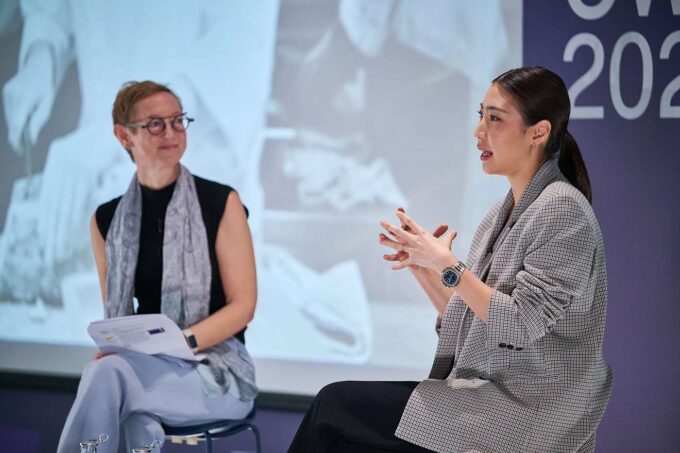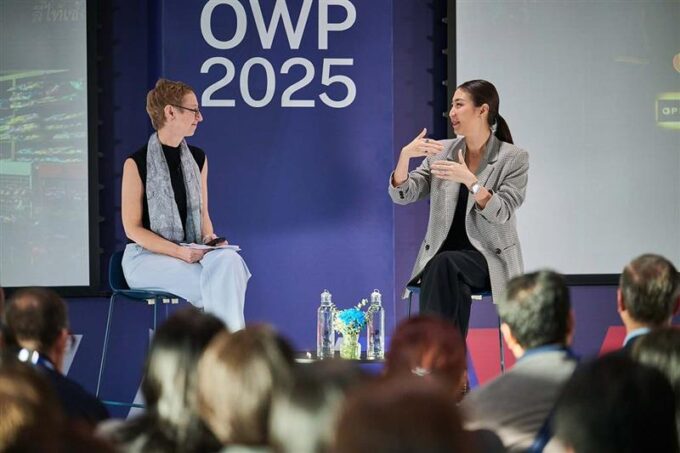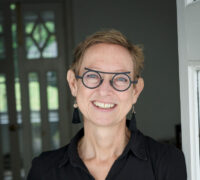
WEF Unplugged: Geopolitics, sustainability, and a look behind the scenes
Live from Davos: IMD’s Julia Binder and David Bach cut through the headlines on geopolitics, AI, energy – and competing visions for the international order....
October 17, 2025 • by Marleen Dieleman in Family Business (Industry)
Chef Pam’s journey from a forgotten family building to global recognition reveals a timeless lesson in leadership: that creativity, connection, and simplicity can turn pressure into possibility....
When Pichaya (“Pam”) Utharntharm first stepped into her family’s long-abandoned pharmacy in Bangkok’s Chinatown, the rooms were cluttered with boxes of old books and relics her grandfather had locked away decades earlier. Where many would have seen a crumbling building at the end of a narrow, chaotic alley, she saw possibility. Five years later, that same space – Potong – ranks among Asia’s most celebrated restaurants, a living testament to how vision, patience, and simplicity can turn legacy into leadership.
Named the World’s Best Female Chef 2025, Utharntharm, who is more famously known as Chef Pam, has built far more than a Michelin-starred restaurant. She has created a philosophy of leadership grounded in story, emotion, and meaning – a belief that memory can become strategy, that simplicity demands mastery, and that loyalty begins with trust and purpose.

When her parents first suggested reclaiming the 120-year-old family building, Utharntharm hesitated. The location was far from ideal: “a small road, no parking, not a luxury area for fine dining,” she recalled. But the moment she climbed from the first floor to the rooftop, she felt a connection that would shape her future.
“I wanted to create a cuisine and leave my legacy by respecting my heritage,” she said. The connection she felt to the space became her source of purpose.
The restoration began in 2019, just before the COVID-19 pandemic, and it quickly became both a creative and personal test. Renovating a historic building, she learned, “takes more money than building a whole new one,” and required years of commitment before the doors ever opened. Those constraints brought clarity. What started as a family project became a metaphor for transformation, reviving not just a space, but a sense of identity.
In business terms, it was a lesson in purpose-driven reinvention – transforming what she inherited into something entirely new. By anchoring innovation in heritage, she turned constraints into a catalyst for creativity.

What sets Potong apart, Utharntharm explained, isn’t only the food. It’s the emotional connection that lingers long after the meal. “Great food you can find anywhere,” she said, “but food that really sticks in your head, you remember that moment. That’s what we want to create.”
Her idea of hospitality came from a parenting book she read while pregnant. “It said that if you want a child to remember an apple, you can’t just show a picture. You need to let them see, smell, touch, and taste it,” she recalled. From this insight grew her five-senses philosophy, where each guest’s journey, from street to rooftop, becomes an act of immersion.
At Potong, every detail evokes memory and emotion: the historic building, the changing menu, even a letter to her ancestors printed on each place setting, connecting its guests across cultures. Her approach shows that real engagement begins with emotion – loyalty you feel long before you understand it.
We failed so many times, but that’s how the best ideas are born.
“Potong” means “simple” in Chinese: a name that reflects her belief that true innovation begins with simplicity. Early in her career, she admitted, she wanted to impress by adding more to the plate. “When you graduate from culinary school, you want 20 things on a plate,” she said. “But as you grow, you put less and less. Simple doesn’t mean easy. The simpler you go, the more perfect you need to be.”
Her celebrated reinterpretation of Pad Thai, inspired by a design-thinking session with her husband and team, is a study in disciplined creativity. “To create something new and unique is very hard,” she said. “We failed so many times, but that’s how the best ideas are born.”
Behind the art, she emphasized, lies structure. “Sometimes art and structure have to meet in the middle,” she said. “That’s what business is: opening a restaurant, you need an artist’s side and a structure to support that art.”
For leaders, it’s a reminder that focus is strength. Simplicity, she believes, isn’t the opposite of ambition – it’s what reveals it.
Every year, she organizes internal competitions for kitchen staff to invent their own dishes.
In the early days, Utharntharm found it difficult to delegate. “I liked to do things myself. I didn’t trust others. But as the business grew, I realized that if I didn’t trust or let people make mistakes, they wouldn’t learn, and I couldn’t grow either.”
Now, she empowers her team through creative freedom and shared purpose. Every year, she organizes internal competitions for kitchen staff to invent their own dishes. The reward isn’t just recognition, but ownership.
“Leadership is not about telling people what to do. It’s about listening and letting them find their own rhythm.” That approach has shaped The X Project, her expanding hospitality group, which includes fine-dining and casual concepts led by long-time team members. “Some people have been with me for 10 years,” she said. “They already have my DNA. When they lead their own restaurants, they grow, and so do we.”
Her approach highlights a core truth of modern leadership – that empowerment builds resilience. By shifting from control to trust, she’s cultivated a culture where creativity and accountability thrive side by side.

For all her global recognition, Utharntharm’s approach remains deeply human. Her leadership style is “quiet”: focused on empathy rather than authority. “I lead by example, and I want my team to feel like family,” she said. “When you feel happy and at home, you never want to quit.”
Her kitchen today is 90% female. Not by design, but by choice and chemistry. “All the women are very strong,” she said. “And all the men have a feminine side. Somehow it balances.”
When asked about being named the World’s Best Female Chef, she was characteristically humble: “It’s beyond my dream.”
In that balance lies another leadership insight: emotional diversity can be a quiet force for performance. She shows that leadership strength doesn’t come from dominance, but from care and authenticity.
For her, growth means moving forward, no matter how uncertain the path.
Reflecting on her journey, Utharntharm shared the word that guides her life: respect – for heritage, for people, for ingredients, for opportunity. But she doesn’t preach it; she practices it in the way she builds teams, crafts experiences, and transforms the ordinary into the exceptional.
Her journey suggests something simple yet profound: leadership, at its best, is an act of service – to people, purpose, and craft. Her story, at its heart, is a reminder that great leadership – like great cuisine – is not about perfection, but presence. It’s about seeing potential where others see obstacles, creating connections where others see differences, and finding meaning in simplicity.
For her, growth means moving forward, no matter how uncertain the path. “You cannot return time. You cannot step back. Just keep going.”
This article is inspired by a keynote session at IMD’s signature Orchestrating Winning Performance program, Singapore (2025), which brings together executives from diverse sectors and geographies for a week of intense learning and sharing with IMD faculty and business experts.

Award-winning Chef

Peter Lorange Family Business Professor
Marleen Dieleman holds the Peter Lorange Chair in Family Business. She is an expert on the challenges faced by emerging market enterprises in their strategic trajectories. Her research focuses on the governance, strategy, internationalization, innovation, and transformation of business families in emerging markets, and also on emerging market state-owned enterprises and the interaction between these companies and their governments. At IMD, she directs the Future-Proofing your Business Family program and is co-director of the Orchestrating Winning Performance Program.

January 23, 2026 • by David Bach, Julia Binder in Geopolitics
Live from Davos: IMD’s Julia Binder and David Bach cut through the headlines on geopolitics, AI, energy – and competing visions for the international order....

January 23, 2026 • by David Bach, Julia Binder, Arturo Bris, Frédéric Dalsace, Simon J. Evenett, Florian Hoos , Jennifer Jordan, Sara Ratti, Karl Schmedders, Sarah E. Toms, Ginka Toegel in Geopolitics
From Trump and transatlantic tensions to AI’s reality check and sustainability’s reinvention, Davos 2026 signals a shift toward values-based pragmatism....

January 12, 2026 • by Simon J. Evenett in Geopolitics
In turbulent times, companies can justify their investments in geopolitical assets by moving beyond risk mitigation and using foresight to gain competitive advantage and create value....

January 9, 2026 • by Jerry Davis in Geopolitics
The US President is gouging out chunks of America’s long-established economic data apparatus because he doesn’t like what he sees. It’s unlikely to end well....
 Audio available
Audio availableExplore first person business intelligence from top minds curated for a global executive audience